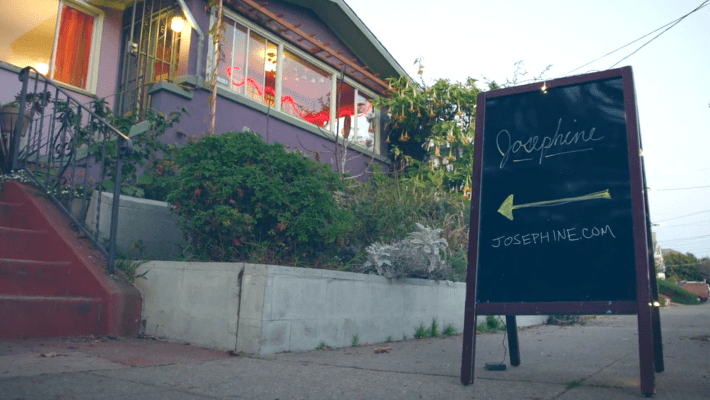Josephine, the startup that lets people cook meals inside their homes and sell them to neighbors, is sponsoring a recently-introduced homemade food bill in California that aims to legalize the sales of prepared meals and other food from small-scale, home kitchen operations. Assemblymember Eduardo Garcia (D-Coachella) introduced the bill, AB 626, this week.
Josephine is sponsoring this bill in part because the startup decided to pause its Oakland operations last May after some of its cooks received cease and desist letters for the illegal sale of food from their homes. Under Cottage Food Law, it’s illegal in California to sell homemade food unless they are “non-potentially hazardous foods” — foods that are unlikely to grow bacteria at room temperature — like baked goods (cookies, biscuits, pastries), candy, dried fruit, popcorn and dried pasta. So, there are also wider implications and benefits for street food vendors and small-scale caterers if this bill passes.
“Now, I think there’s even a broader political impetus around protecting vulnerable communities,” Josephine Co-CEO Matthew Jorgensen told TechCrunch. “And given that there is a threat of criminal sanctions for preparing and selling food from a home kitchen, which could be punishable by misdemeanor, there is a lot of willingness to clarify the law.”
This is the second time Josephine has sponsored a bill (the first was AB-2593, which was ultimately pulled due to opposition from the California Conference of Directors of Environmental Health in 2016), but the company hopes for a different outcome this time around. That’s because it has worked with its opposition, the CCDEH, as well as a group of cooks, legal experts, and food and labor justice organizations.
“[The CCDEH] have agreed to continue collaborations,” Jorgensen said. “They’ve essentially laid out a number of considerations that if met substantively would allow them to not oppose the bill this year, which is a huge about face when it comes to just regulatory culture change.”
Last year, the bill Josephine sponsored looked to exclude homemade food sales from the food code, and likening the operations of Josephine’s cooks to those of a community potluck so that, “below a certain scale, these sort of operations wouldn’t be subject to commercial permitting requirements,” Jorgensen said. But regulators still wanted to be involved in specifying requirements around those types of operations, so the bill was scrapped. This current bill, which has the support of the CCDEH, proposes an entirely new permit that requires some specifications around training and sanitation for homemade food sales.
If the bill passes, Josephine would be able to legally resume operations in Oakland and throughout California. The soonest Josephine would be able to kick back up operations in California, Jorgensen said, would be January 2018.
Given that its biggest opponent co-drafted the bill, Josephine is pretty optimistic that the bill will be successful. And if it does indeed pass, Jorgensen thinks it would strengthen Josephine’s case in other cities in which it operates and is looking to operate.
“For us, we see it as our first proof point that we can thoughtfully and collaboratively craft legislation that addresses the needs of these cooks, and is respectful and sensible from a public health perspective,” Jorgensen said. “I think that a lot of our conversations in other cities and states — it’s been helpful to be able to refer to the fact that we’re actively drafting and engaged in this sort of collaborative effort in California because California, in a lot of ways, is considered to be a leader when it comes to public health standards, as well as food systems work, so I think if we’re able to pass the law here, it’s really going to be a great proof point that this can be done and done safely.”
